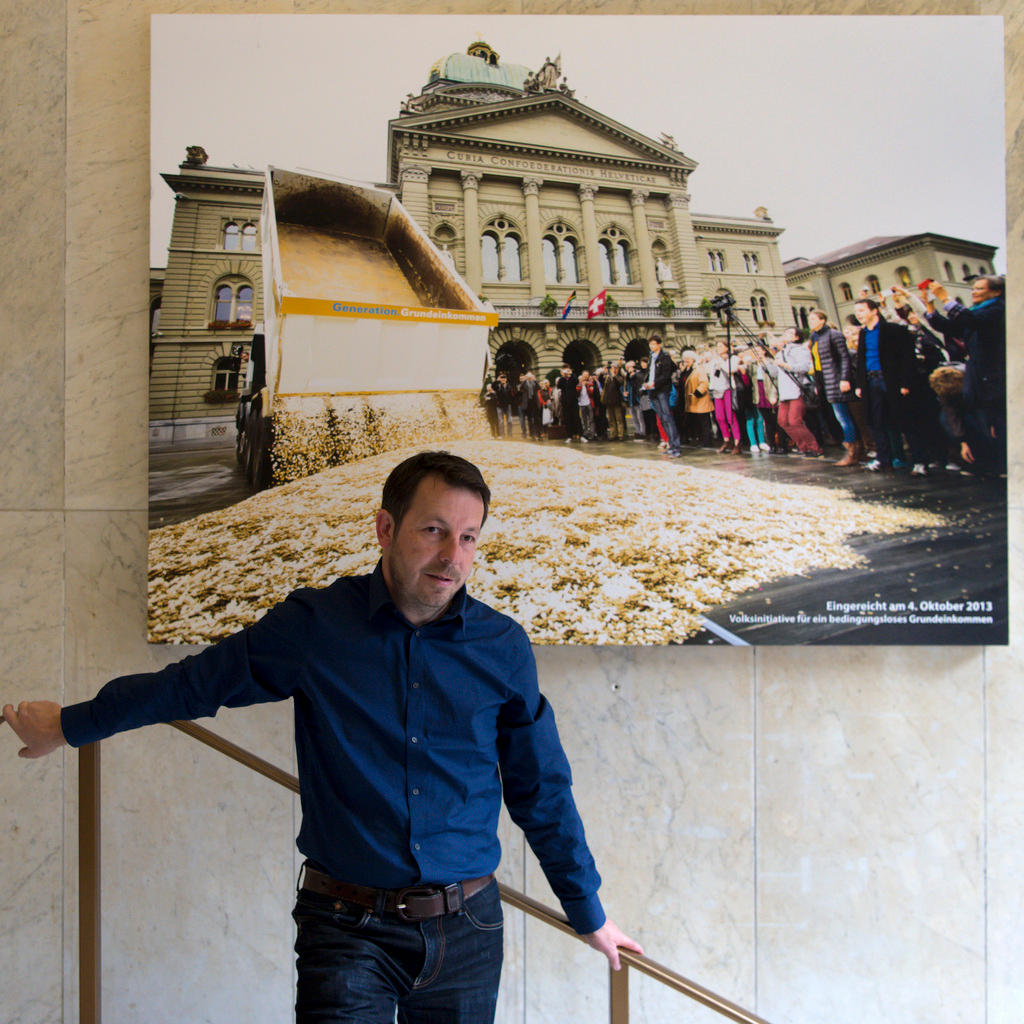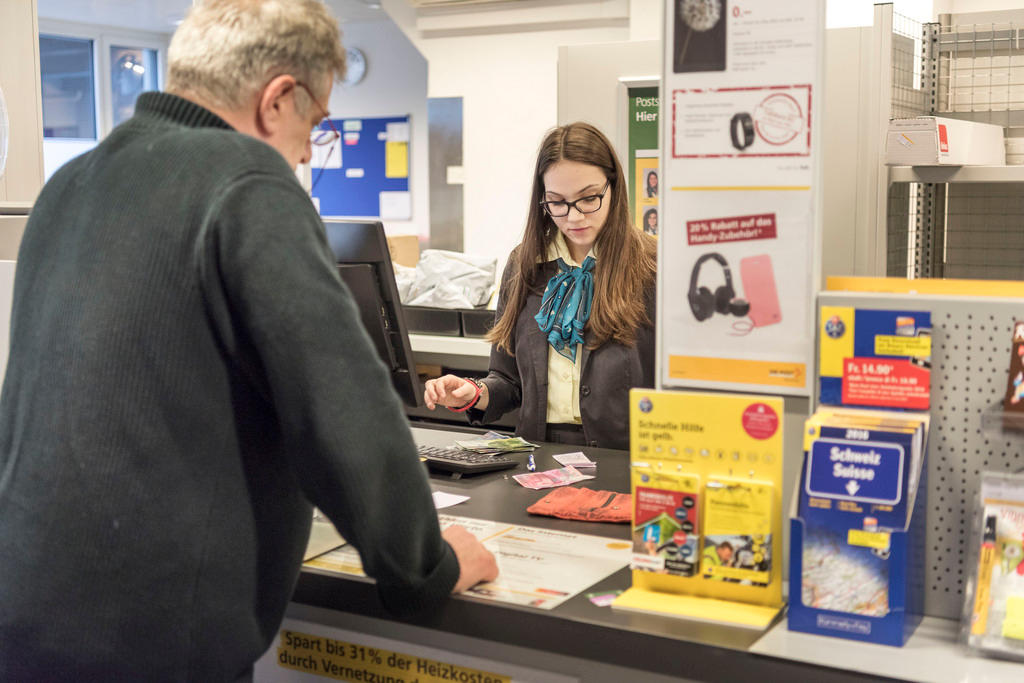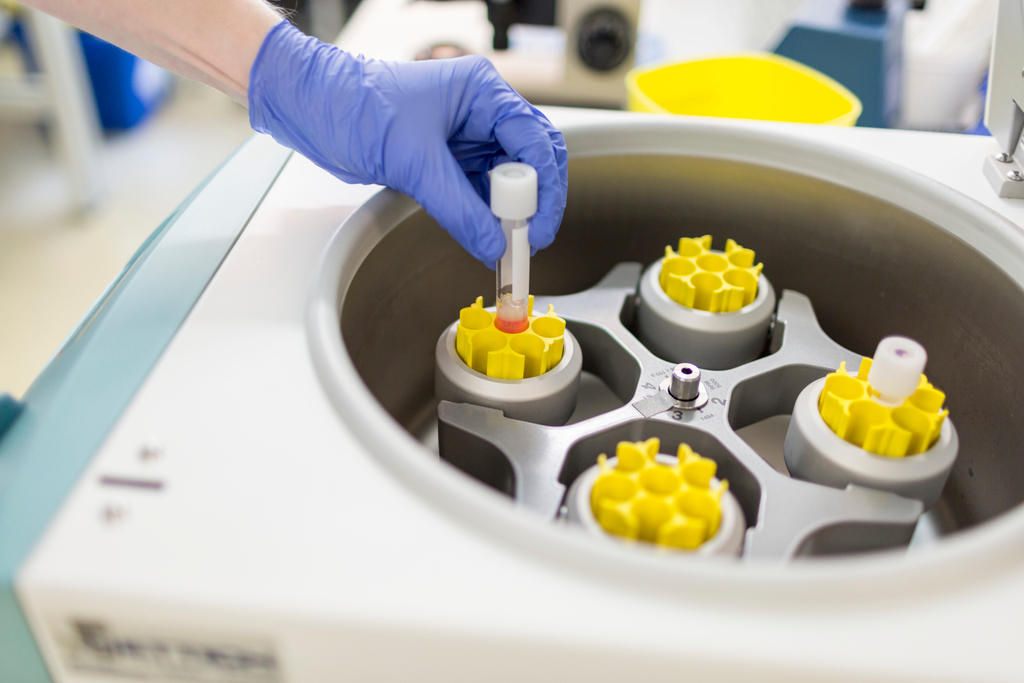Basic income initiative set for defeat

The final opinion poll ahead of a nationwide vote on June 5 has found an overwhelming majority of citizens coming out against the introduction of an unconditional basic income in Switzerland.
The survey, published on Wednesday, found 71% of respondents saying they would reject the initiative, while 26% said they would approve it. The figures are virtually unchanged from a first opinion poll in April commissioned by the Swiss Broadcasting Corporation, swissinfo.ch’s parent company.
“Opinions were made up from the beginning. There was hardly any change during the campaign,” says political scientist Martina Mousson of the leading GfS Bern research and polling institute, which carried out the survey.
She says there is slightly more support among leftwing parties, younger people and those with a higher income compared with last month’s poll. The initiative has also gained slightly more ground in the French-speaking part of the country.
Nevertheless the verdict remains unambiguous. “The initiative will be clearly rejected,” Mousson concludes.
The pollsters acknowledge that the promoters of an unconditional basic income have led an interesting campaign and have achieved a respectable result so far, but the opponents are clearly stronger.
Campaigners have repeatedly said they did not expect to win the vote in June.

Asylum reform
The poll did not find any major changes over a proposal to make asylum procedures more efficient by establishing special centres and speeding up the processing.
The rightwing Swiss People’s Party had challenged a decision by parliament to a nationwide vote, but the opinion poll found only 29% planning to reject the law. However, 11% of respondents said they were still undecided.
“Chances of opponents getting the upper hand are very slim,” summed up GfS Bern director Claude Longchamp.
He says it is hard to beat the arguments of the supporters to make the asylum system more efficient, although he says concerns about expropriations to set up new asylum homes have considerable potential to boost the side of the opponents.
As the asylum situation has not worsened in Switzerland over the past four weeks, massive protest votes are unlikely, says Longchamp.
Tide turns
An initiative to boost basic services of state-owned companies, including the Post Office, the Federal Railways and the telecom provider Swisscom, has seen a massive drop in support.
Pollsters interviewed 1,419 Swiss citizens across the country for the final of two nationwide surveys ahead of the June 5 vote.
Swiss expatriates were not included in the poll.
The telephone interviews took place between May 13-21.
The margin of error is 2.9%.
The survey was commissioned by the Swiss Broadcasting Corporation, swissinfo.ch’s parent company, and carried out by the leading GfS Bern research and polling institute.
“The tide has turned because the campaign of the opponents is beginning to have an impact,” says Mousson.
The initiative had no support at all in parliament, but it still seems to have hit a “raw nerve”. Pollsters see a trend pointing towards rejection of the initiative, which was launched by a group of consumer magazines.
“The arguments brought forward are conflicting and quite a special situation,” says Longchamp. “It is as if citizens want public services to be modernised but consumer protection to be boosted.”
He adds that political parties may have underestimated the situation.
Traffic funding
An initiative to boost the financing of road transport has also lost support, but the drop is far less pronounced. Currently 40% of respondents are against the proposal by Switzerland’s car lobby which has the support of the People’s Party and some members of the centre-right Radical Party.
The GfS Bern institute says rejection of the initiative is likely if the current trends continue.
A fifth issue to come to a nationwide vote in June – a law allowing pre-implantation genetic diagnostics (PID) – has not been polled.
Experts say they expect approval of the law, just like 12 months ago when voters had the final say on a constitutional article on the same matter.
Turnout on June 5 is likely to return to average levels – around 48%. “There are no signs of a massive protest vote by people who don’t trust the authorities,” says Longchamp.
Participation in the votes in February – which included an initiative on deporting criminal foreigners – reached 63%, the highest figure in more than 20 years.
There are five issues on the ballot sheet: a people’s initiative to introduce an unconditional basic income, a proposal by consumer rights groups to boost public services and a plan by political right to provide extra tax funds to road transport.
Two decisions by parliament are also at stake: a reform of the asylum laws and a law on pre-implantation genetic diagnosis.
It is the second set of nationwide votes this year.

In compliance with the JTI standards
More: SWI swissinfo.ch certified by the Journalism Trust Initiative














You can find an overview of ongoing debates with our journalists here . Please join us!
If you want to start a conversation about a topic raised in this article or want to report factual errors, email us at english@swissinfo.ch.